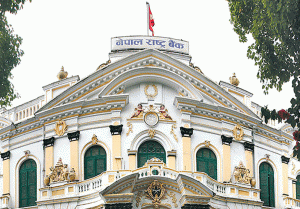
Issues ranging from the Prime Minister’s visit to India and the Doklam standoff have received attention from op-ed editors of broadsheet dailies published in Kathmandu.
Prime Minister’s visit to India

In his op-ed for Republica, Hari Bansh Jha suggests that Prime Minister Deuba, who was also the head of government when Nepal and India signed a deal to develop the Pancheswar project, discuss the treaty with New Dehli. He goes on to assert that had the 6,000 MW Pancheshwar been completed in time, Nepal would have been a different country today.
Jha says the ‘historic’ agreement, if implemented, would have given clean power, helped check deforestation, helped develop new towns, and create employment opportunities at a massive scale. The DPR of the project was to be prepared 20 years ago, but it still has not been finalised.
The author warns that India has now become an energy surplus country and it may no longer need power from Nepal. He calls on the Prime Minister to step up the negotiations and get the project moving. If he can do this during his time in Delhi, his visit will be historic.
Naya Patrika carries an interview with Shailendra Guragain, the President of Independent Power Producers Association (IPPAN). In the interview, Guragain says, Prime Minister Deuba should talk to the Indian side about annulling the power purchase directive India issued recently. It bars power traders from importing electricity form projects that do not have Indian investment. He has also suggested that the Prime Minister urge India to allow passage for Nepal-Bangladesh transmission lines.
The India-China standoff and Nepal

Prof Shreedhar Gautam in his op-ed for Annapurna Post traces the history of Indo-China relations to the days of Mao and Nehru. He says during that period, India and China were fighting against colonialists and they had similar world views. But as Nehru emerged as the leader of the Third World, China felt the heat and it did not want to be overshadowed by Nehru’s India. The two powers were on a collision course and in 1962, there was war between the countries over territorial dispute. India lost the war.
In today’s context, China believes that India is colluding with the US on global issues even if it means ignoring its own sovereignty and independence. He says that China is wary of India’s recent efforts to improve ties with countries in the Asia-Pacific reason. Similarly, India does not like China’s improved ties with South Asia.
He says that both China and India should understand that if war breaks out between the two countries over Doklam, it will not be a localised war like the one in 1962. Both countries should not fall in the American plot to turn China and India into foes.
He says that Nepal should also not speak on the issue, even as it wants better ties between its two neighbours.
























